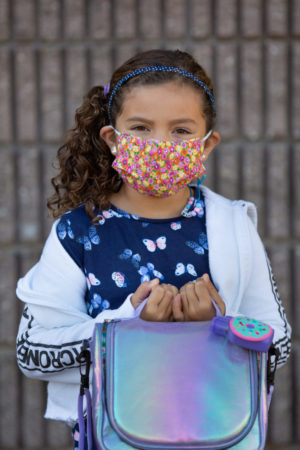
October 2020
The COVID-19 pandemic has affected millions of students, teachers, and families. I know this firsthand as a student at American University, my education has been turned upside down. While many have focused on the logistics of distance learning and eventual reopening of schools, however, I feel that this pandemic represents a ripe opportunity to systemically reconsider our education system to better serve students. We are seeing everyday how the shift to online or remote learning can encompass a host of complications – from technology and internet inaccessibility to mental health and financial barriers.
Earlier this year, these issues exposed a critical gap in school-based contingency planning within broader education emergency management planning. Schools around the world have some sort of preparedness plan in place for man-made or natural crises, but understandably, not one for something like a pandemic. As a result, schools, teachers, and families struggle with uncertainty about how to prepare for educational continuity and provide holistic support for students during long-term out-of-school closures and the start of a new school year.
Uncertainty and struggle are, of course, inevitable, as it has been 100 years since a pandemic has swept the world in this way. But the lack of research and guidance for educational continuity is noteworthy: education, itself, is incomplete without some form of psychosocial support that promotes holistic well-being of students. Ensuring that students’ mental, social and physical needs are met is a significant precursor to learning. I can say from my own experience, as a college student navigating virtual school from my parents’ house, that it is nearly impossible to perform well in school without having necessary resources to support me in doing so.
Community Schools, a researched-based strategy, has proven effective in serving these kinds of needs across the country, as they are designed to offer a wide range of services to students and their families. These include tutoring, after-school programs for children and adults, health care screenings, psychological supports, nutrition and legal counseling, and food pantries within their school systems. Students cannot develop basic academic skills without community support, so in the face of a pandemic, Community Schools were able to tackle the critical gaps that have been exacerbated by the crisis.
In March, 2020, when the nation began shutting down, the Coalition for Community Schools quickly responded with hosting weekly town halls from March through May, engaging thousands of Community School professionals from across the country to come together and share strategies they had begun implementing in the face of school closures. Some of the most pressing issues Coordinators were experiencing in their communities were fears about rising food insecurity – with schools closed, many students were at risk of losing access to the only meals they received each day. As a response, several public schools across the country started “grab-and-go” meal pickups at their school sites. These efforts work – but only under the assumption that parents can provide reliable transportation to and from the food sites for their kids.
Within hours of announcements of school closures in March, Community School Coordinators nationally combated food insecurity by utilizing school buses to bring meals to students’ bus stops or homes. In a crisis, it was important to recognize non-food items that families may lack access to, and for schools to partner with supply banks that can provide them. When I interviewed Luann Kida, Director of the Binghamton University Community Schools Network, I was astounded to hear that there were coordinators who were transforming buses into wifi hotspots for students without internet access. I also learned of other examples of Coordinators helping deliver supplies to their students’ homes that extend beyond just meals. Curtiss Sarikey, Chief of Staff with the Oakland Unified School District, shared that the district distributed feminine hygiene products to his students along with diapers for families with babies and toddlers.
To address the digital divide when schools closed early this year, some Community Schools remained open during certain hours for families to pick up instructional packets. These packets included information on how to obtain internet services for free through providers like Comcast and Spectrum, as well as guidance around how to maintain good health and wellness. Coordinators also reached out to families via WhatsApp or by making phone calls to keep track of their various needs. Sarikey’s district even kept half of their health centers open as part of the primary health care network for their city.
Director of Community Schools at United Way of Asheville and Buncombe County, Laura Elliot, also shared that Asheville City Schools utilized funds to host group therapy with local mental health providers through online video conferencing platforms like Zoom. Other Coordinators and teachers held mental wellness check-ins with their students and parents each day, and hosted virtual lunches with them to maintain social relationships.
The COVID-19 epidemic will not be the last crisis to threaten school continuities – daunting research that illuminates how climate change will affect infectious disease occurrence across the globe is just one example of what we face in the future. Therefore, school districts, municipalities and counties across the U.S. should look at Community Schools not only for advancing education, but as an emergency preparedness strategy that addresses any crisis by creating a culture of community care that re-envisions the way we view education systems.